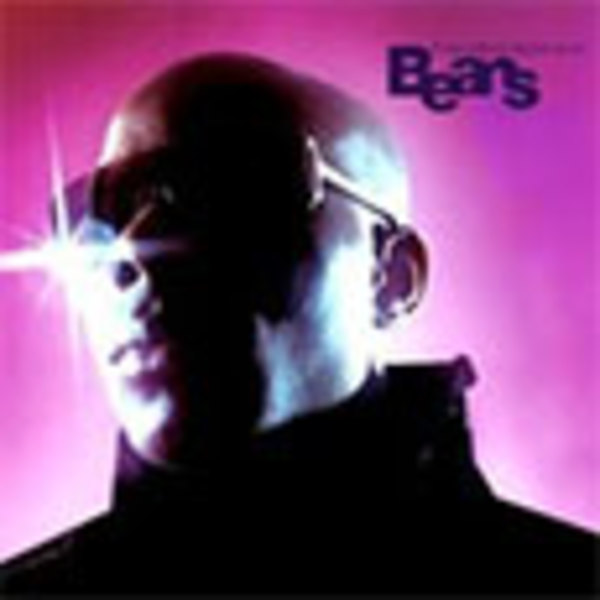Beans Tomorrow Right Now
I approached this album with skepticism. How could this, the first release after the sudden […]

I approached this album with skepticism. How could this, the first release after the sudden break-up of New York experimental hip-hop trio Anti-Pop Consortium by the group’s more wordy, abstruse and mohawk-sporting member Beans match his former group’s mix of complex wordplay and minimalist electronic hip-hop beats? But Beans has recently been spending lots of time in the downtown New York avant-jazz scene, exploring broader territories, and performing at improvisational music venues like Tonic with such adventurous composers as Arto Lindsay. Still, with a title like Tomorrow Right Now, I suspected some kind of overly intellectual, DJ Spooky-style, hip-hop-to-experimental tomfoolery, the kind made for cross-legged head-nodders in art gallery lofts rather than the subterranean hip-hop arm-wavers of Anti-Pop’s dynamic realm.
But that’s not the case at all on Tomorrow Right Now. Rather, Beans-an unconventional rapper anyway-forges a widely varying sonic space that encompasses the avant-garde of both downtown New York and APC’s underground hip-hop-electronica, while also aligning himself with both electroclash and blacktronic trends via explorations into ’80s textures, technologies and tones. It’s the sound of Suicide and Bill Laswell reined in by Grandmaster Flash and Afrika Bambaataa. He holds all the music together through his ultra-abstract mic bravado, which has already found greater range since APC. Beans is now in control of his delightfully confusing cacophony of prose and unwieldy machine clatter.
New York’s downtown avant-garde jazz influence is most evident on Tomorrow‘s vocal-less tunes, compelling instrumentals that are replete with layers of freaky electronic noise. “Sickle Cell Hysteria” intertwines robotic clamor with erratic, Zorn-like drums, while “Rose Perriwinkle Plum” rocks a Roland 808’s flat drums and fluttery sine waves, both resulting in an upbeat chaos. Another instrumental, the dubby, spacey “Xon,” is a welcome respite from the intense noise, and bears resemblances to DJ Spooky or Berlin’s Rhythm & Sound. Beyond hip-hop and more “out” than leftfield dance music, this is more like free-tronica, a spontaneous pallet of frenetic, digital sounds.
Equally abstract but at least grounded in some recognizable past are Bean’s excursions into ’80s electro minimalism. “Phreek the Beet,” Tomorrow‘s most distinctive and memorable track, not only employs an emphatic and absurd female chorus, but Beans himself drops into a falsetto rap, a technique that nicely complements his already androgynous style: “Uh-oh, its the new wave vandal, we tell you to throw hopes on testicles, sing soprano.”Hot Venom” rocks a similarly tongue-in-cheek female hook, aided by spurting synth ambience, the same eerie resonance carrying “Walking by Night,” the same ooze that lurks in old sci-fi films and early electronic music. It’s these intentionally retrograde moments that ensure his underground status-a lo-fi minimalism that slides by through daring beat arrangements and off-kilter syncopation. Beans is a Lou Barlow or Beck for the geek-rap set, homemade recordings and all.
Even so, Tomorrow also becomes an unspoken tribute to early black electronic pioneers like Zapp and Cameo. If his endearing nerdiness prevents conceptual pretension, it’s his more straightforward hip-hop that, unlike nostalgia or concepts, simply bounces and grinds, daring originality still intact. On both “Raping Silence” and “Slow Broken,” he loses his wordy flow for a more confident, urgent, and visceral delivery that’s more like a yell, making lines like “Raping silence, my ego flies with eagles” simply incendiary. “Slow Broken” somehow balances a furious, bass-heavy beat with theremin-like washes, while Beans’s commanding vocals intone “symphonic tectonic plate, move crowd post-erotic.” Likewise, “Mearle” fiercely rumbles with grinding bass and clickety-clack hi-hats, while Beans alternates between an urgent yell and an intimate narration, giving his lyrics a cinematic presence, like Darth Vader’s disembodied voiceovers in Star Wars.
Certainly Tomorrow Right Now is all over the place-yesterday, tomorrow and more beyond a little right now. But Beans wants to separate himself both from all those other MCs that aren’t listened to, and from those sample-heavy producers who are. He succeeds, sometimes for better and sometimes for worse. More importantly, he holds his own, shining like he wasn’t quite able to do with Anti-Pop Consortium, exhibiting his range as a musician, singer and abstract thinker.

